Trump’s Criminality Can Galvanize the Left
The Nation's Jeet Heer explains how progressives can make political hay of impeachment without bowing to the national security state.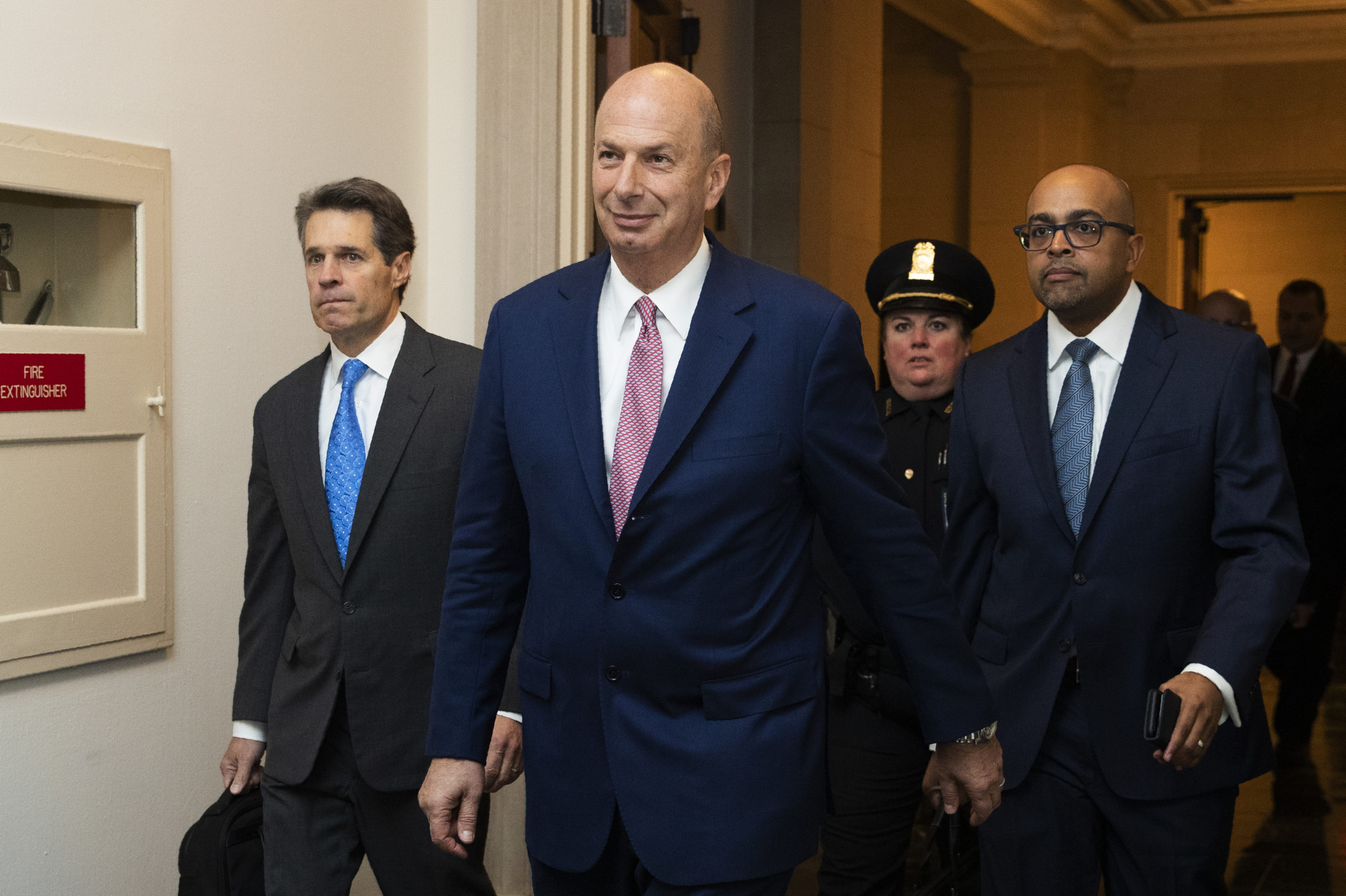 U.S. Ambassador to the European Union Gordon Sondland testified before the House Intelligence Committee on Wednesday. (Manuel Balce Ceneta / AP)
U.S. Ambassador to the European Union Gordon Sondland testified before the House Intelligence Committee on Wednesday. (Manuel Balce Ceneta / AP)
What follows is a conversation between journalist Jeet Heer and Marc Steiner of The Real News Network. Read a transcript of their conversation below or watch the video at the bottom of the post.
GORDON SONDLAND: I know that members of this committee frequently frame these complicated issues in the form of a simple question. Was there a quid pro quo? As I testified previously with regard to the requested White House call and The White House meeting? The answer is yes.
MARC STEINER: And of course, that was Ambassador Sondland. And I’m Marc Steiner here for The Real News. Good to have you with us.
There’s more impeachment proceeding than any of us can really watch or follow; however, it is on and we will follow and cover it. And we’ll talk about what happened yesterday with Lieutenant Colonel Alexander Vindman and Jennifer Williams testifying. But we’ll start by looking at what Ambassador Sondland had to say today and this morning, and then probe what the impeachment process really means politically given what the polls tell us about the relative intransience of the American voting public. Let me welcome back national correspondent for The Nation Jeet Heer. Jeet, good to have you back with this.
JEET HEER: Good to be here.
MARC STEINER: So let’s do start. We should start here with Sondland, as I said. So let’s watch these clips of what Sondland did have to say and kind of probe a little bit what just happened this morning and how significant, if at all, it is.
GORDON SONDLAND: In July and August of 2019 we learned that The White House had also suspended security aid to Ukraine. I was adamantly opposed to any suspension of aid. I tried diligently to ask why the aid was suspended, but I never received a clear answer. Still haven’t to this day. In the absence of any credible explanation for the suspension of aid, I later came to believe that the resumption of security aid would not occur until there was a public statement from Ukraine committing to the investigations of the 2016 elections and Burisma as Mr. Giuliani had demanded.
MARC STEINER: So even though he never said this was a quid pro quo, and that seems to be a lot of things hinging on. He did kind of say that he opposed this and he’s kind of backpedaling. We’ve seen already that Trump has tweeted or said today attacking him as well already. I don’t know how much longer he’ll have this job.
JEET HEER: Because I think the thing to bear in mind is this is a real Trump supporter. He gave a million dollars to Trump and he got–as is common in America–an ambassadorship, an important ambassadorship. And he is basically saying he was involved in all of this and he’s in the thick of it and his understanding is that there was a quid pro quo. Now you can say, well he also says that those words were used. But I mean, that’s like saying like, “Well, the godfather just said, ‘I’ll make you an offer you can’t refuse.’” He was like, “I’m just making an offer.”
MARC STEINER: Well this is almost like I was thinking that if that if Trump actually knew any civil rights gospel songs, which he probably doesn’t yet, he’d be singing Which Side are You On Boy, trying to figure out what’s going on here.
JEET HEER: It’s pretty clear now that he’s on Sondland’s side; that Sondland wants to try to get out of this. He realizes he’s in a mess and what he’s trying to do is give as much information, but also try to not implicate himself. And that’s why he’s saying he wasn’t told this or that. I think there’s some of the stuff that Sondland’s saying that is actually not very credible. He’s saying that he wasn’t aware until late that it involved Biden, but if you follow the news at all, everybody knew it involved Biden.
MARC STEINER: So do you think some of the mainstream press has kind of put this as a John Dean moment when he turned on a Richard Nixon that he was a linchpin to get the impeachment process moving with the Nixon? Some people were saying this is that, I’m not quite sure it is.
JEET HEER: Yeah. Well it is that in the sense that this is somebody who was on the president’s side was giving a huge credible, basically credible testimony about the corruption. The difference with John Dean is that it was a very different country. And with Dean the game was up because Republicans in Congress and the Senate were willing to listen and convert. I actually think that there’s every evidence so far that this won’t happen, that he will not be a linchpin because the Republicans will stick with Trump.
MARC STEINER: So let’s take a look at this other piece with Sondland and talking about the relationship with Giuliani.
GORDON SONDLAND: Secretary Perry, Ambassador Volker and I worked with Mr. Rudy Giuliani on Ukraine matters at the express direction of the president of the United States. We did not want to work with Mr. Giuliani. Simply put, we were playing the hand we were dealt. If we refused to work with Mr. Giuliani, we would lose a very important opportunity to cement relations between the United States and Ukraine. So we followed the president’s orders.
MARC STEINER: “We follow the president’s orders,” he says, Jeet. Your thoughts on that. But also when you look at it Sondland’s testimony,I think as you said, he’s kind of running scared and wants to back away and not be caught up in this himself. But for Democrats, Republicans, is he a hostile witness? Is he a friendly witness? What role is he playing here?
JEET HEER: Well, I mean I think that the thing is I think the Republicans thought until this morning that he was going to be a friendly witness for them. And if you look at Devin Nunes’s opening remarks, you’ll say that “Whoa, you’re warning that this guy’s going to be smeared because he’s going to be defending the president.” And you know, that is not how it turned out. And so this was very dramatic for that reason. I actually think that he Sondland–and probably under the advice of his lawyers–has decided that he has to start giving people up. And Giuliani is the most convenient person for people to give up or many reasons. And there’s a real indication… And not just Sondland, but also Republicans themselves. If you look at the question of the Republicans, they want to try to make this all about a rogue element, which was “Giuliani was pushing us,” as if Giuliani was not following Trumps orders.
MARC STEINER: So I’m going to switch to the essay for a moment as we kind of wrap this up and kind of bring it to where we are today. This is some of the testimony from Lieutenant Colonel Vindman. Let’s take a look at this.
ALEXANDER VINDMAN: Fully anticipated the Ukrainians would raise the issue of a meeting between the presidents. Ambassador Bolton cut the meeting short when Ambassador Sondland start to speak about the requirement that Ukraine delivers specific investigations in order to secure the meeting with President Trump. I stated to Ambassador Sondland that this was inappropriate, and it had nothing to do with national security.
JIM JORDAN: Your former boss, Mr. Morrison, is going to be sitting right where you’re sitting, and he’s going to testify. And I want to give you a chance. I think we’re bringing you a copy. I want to give you a chance to respond to some of the things Mr. Morrison said in his deposition. Mr. Morrison said this, “I had concerns about Lieutenant Colonel Vindman’s judgment and others had raised concerns about Alex’s judgment.” When Mr. Morris was asked by Mr. Castor, “Did anyone ever bring concerns to you that they believe Colonel Vindman may have leaked something?” Mr. Morrison replied, “Yes.” So your boss had concerns about your judgment; your former boss, Dr. Hill, had concerns about your judgment; your colleagues had concerns about your judgment and your colleagues felt that there were times when you leaked information. Any idea why they have those impressions, Colonel Vindman?
ALEXANDER VINDMAN: Mr. Jordan, I would say that I can’t say why Mr. Morrison questioned my judgment. We had only recently started working together. He wasn’t there very long, and we were just trying to figure out our relationship. Maybe it was different cultures, military culture versus–
JIM JORDAN: And Colonel, you never leaked information?
ALEXANDER VINDMAN: I never did. Never would. That is preposterous that I would do that.
MARC STEINER: So we got pretty kind of vociferous with Vindman yesterday and Lieutenant Williams as well. So when you look at that testimony and what happened today, and then again when you look at what Vindman also said yesterday when he said, “In retrospect I should have seen that connection that you meant between Burisma and Biden differently. And had I done so, I would have raised my own objection.” So let’s talk a bit about the importance just in terms of looking at this impeachment process, how yesterday fits into today and what that saying to the American people.
JEET HEER: Sure. Well, as I mentioned, Sondland is the sort of voice of a Trump appointee and Vindman is really the sort of voice of the professional–the nonpartisan government National Security Bureaucracy. Now I think there’s reasons to question that bureaucracy in the sense that they have their own agenda and he’s really wanted this alliance with Ukraine; and we can question that. But the attacks that were being launched on Vindman were very scurrilous. And you know, they were sort of questioning his patriotism and suggesting he has a dual loyalty to Ukraine. I don’t think the Republicans were playing a very good hand there, because one could question the advice the military gives, and a president has a right to reject the advice that National Security Bureaucracy gives. To question their patriotism without evidence, that seems like very scurrilous.
MARC STEINER: So let’s take a look at a couple of things here politically before we close, and how we think progressives and others have to respond to what’s going on. We’ve seen and we’ll have a clip here in just a minute of people kind of pushing this, the anti-Russian angle, and “we have to support Ukraine in their struggle with Russia.” We’ll look at that. So when you look at this in the moment, think about how progressives proceed without falling into the hands of any others who want to wage this campaign against Russia and to support widening our military influence internationally. And that’s a real question many people have. This is a very tricky line to walk right here at the moment. Let’s take a look at this.
ADAM SCHIFF: In 2014, Russia invaded the United States ally, Ukraine, to reverse that nation’s embrace of the West and to fulfill Vladimir Putin’s desire to rebuild a Russian empire.
GEORGE KENT: For the past five years, we have focused our united efforts across the Atlantic to support Ukraine and its fight for the cause of freedom and the rebirth of a country free from Russian dominion and the warp legacy of Soviet institutions and post-Soviet behavior; a Europe truly whole, free, and at peace. Our strategic aim for the entirety of my foreign service career is not possible without a Ukraine whole, free, and at peace.
MARC STEINER: So let’s wrestle with this for a moment. I want to wrestle with this. Because part of what’s fueling this is the military establishment and the diplomatic establishment, and certain parts of the folks who are behind the Democratic Party as well, really in a quandary about how to deal with Trump and a quandary about what they’re doing to their established order–how they work things out internationally and nationally. So how do you respond to that? Because you can fall into it going, “Yes, yes, yes! Go get them!” Or you can start saying, “Well let’s have some nuance here and talk about why these impeachments here are so important or not and not fall into this trap.”
JEET HEER: What is it that Trump did wrong? What Trump did wrong is not that he disregarded the National Security establishment. Obama did the same thing. They had wanted him to send military aid to Ukraine in 2014-2015 and he said, “No,” he would send humanitarian aid but not military aid. And nobody would want to impeach Obama for that. The president has a right to do that. But Trump’s actions were not based on some sort of strategy. They’re based on a desire smear a political rival. And a president has a right to make foreign policy, but a president does not have the right to use his office and the power of the presidency to smear a rival. It’s a misuse–abuse of power. So I think it’s very important for the left to really emphasize a point. The criminality of Trump is the abuse of office, and this is not about Ukraine policy. You can completely reject the mainstream Ukraine policy that the establishment is pushing and still think that Trump should be impeached.
MARC STEINER: So, but what does this politically mean as we kind of conclude this? What does all this mean politically? If you look at this latest Marist NPR poll that came out that they had on Morning Edition–I think it was this morning and yesterday as well–and it shows a very divided America where people are already taking these hard positions. If you look at that poll, you can see that overall only 40% of the people say that they would even change their minds. Maybe they might change their minds. Democrats has only 25, Republicans only 24, Independents is 39; and the divide is very deep here, as you can see. So politically when you are confronting the most blatantly white nationalist regime ever in the modern history of The United States… Politically, what’s this mean for us? Are we getting so sucked into the impeachment we’re forgetting what it means to organize about the future of America?
JEET HEER: Yeah. Well, I think that the danger is that we let the impeachment belong to the establishment, and I actually think that this is a real argument for left organizations to try and take over the impeachment themselves, to try to use it to make it this issue about Trump’s criminality because he’s a white nationalist, but he’s also a white nationalist criminal. And I mean, it’s true that most people are on partisan lines, but there is a segment of the population–like about 20% to 30%–that’s kind of convertible. And the important thing is that people who hate Trump are the majority. And you have to mobilize those people and you have to use the weapons that you have on hand. And I think in this case it’s a very legitimate weapon that you know, this guy’s a criminal. And to emphasize his criminality is a good wedge to get into everything else that’s wrong with them.
MARC STEINER: And I don’t disagree with the fact that I think he’s acts in very criminal ways and he always has before he was President of The United States. But I mean, when you look at this and you look at the Democrats and what we talked about earlier, defending Ukraine–and nobody’s really talking about defending Ukraine at the moment–that was being run by fascists, literal fascists, people who sympathize with the Nazis, were okay with killing all the–
JEET HEER: I mean, the problem is of course it’s a Democratic establishment policy who have chosen the grounds for impeachment. And they chose the grounds that are the most favorable to wanting to maintain the status quo. But the fact that the president is a criminal is not a minor matter, and it raises all sorts of issues with the legitimacy of the regime. And I think that for the left, there’s a real opportunity here to use this to educate the population and to organize and educate at the same time.
The attack that Trump was making was really an attack on American democracy. I mean, one could be completely indifferent, or see Ukraine and want a different European policy and still think that what Trump was doing was to try to undermine American democracy. And the that goes to the heart of that issue of white nationalism that you talk about. Trump represents a minority movement in America. He got less votes than his rival and the Republicans get less votes in the Senate; they get less votes in the house. But because of the American system, they’re overrepresented. So to talk about how these people could only stay in power by committing crimes is a way of highlighting that this is an illegitimate minority movement that is trying to thwart American democracy.
MARC STEINER: Well, Jeet Heer, it’s always a pleasure to talk with you. I appreciate your perspective always, and we look forward to many more conversations around this and other things. Thank you so much for your time today.
JEET HEER: Thank you. It’s great to be here.
MARC STEINER: Always good to have you. And I’m Marc Steiner here for The Real News Network. Thank you all for joining us. Please let us know what you think. Take care.
Your support is crucial…
With an uncertain future and a new administration casting doubt on press freedoms, the danger is clear: The truth is at risk.
Now is the time to give. Your tax-deductible support allows us to dig deeper, delivering fearless investigative reporting and analysis that exposes what’s really happening — without compromise.
Stand with our courageous journalists. Donate today to protect a free press, uphold democracy and unearth untold stories.


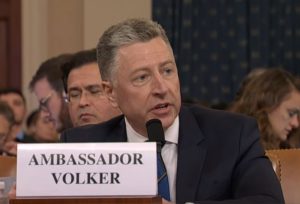
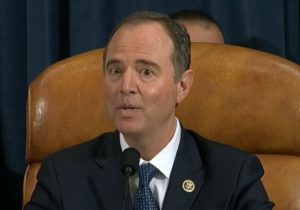
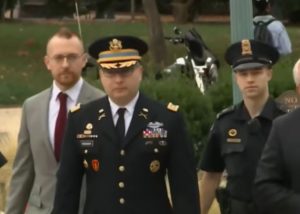

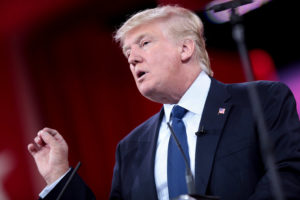


You need to be a supporter to comment.
There are currently no responses to this article.
Be the first to respond.